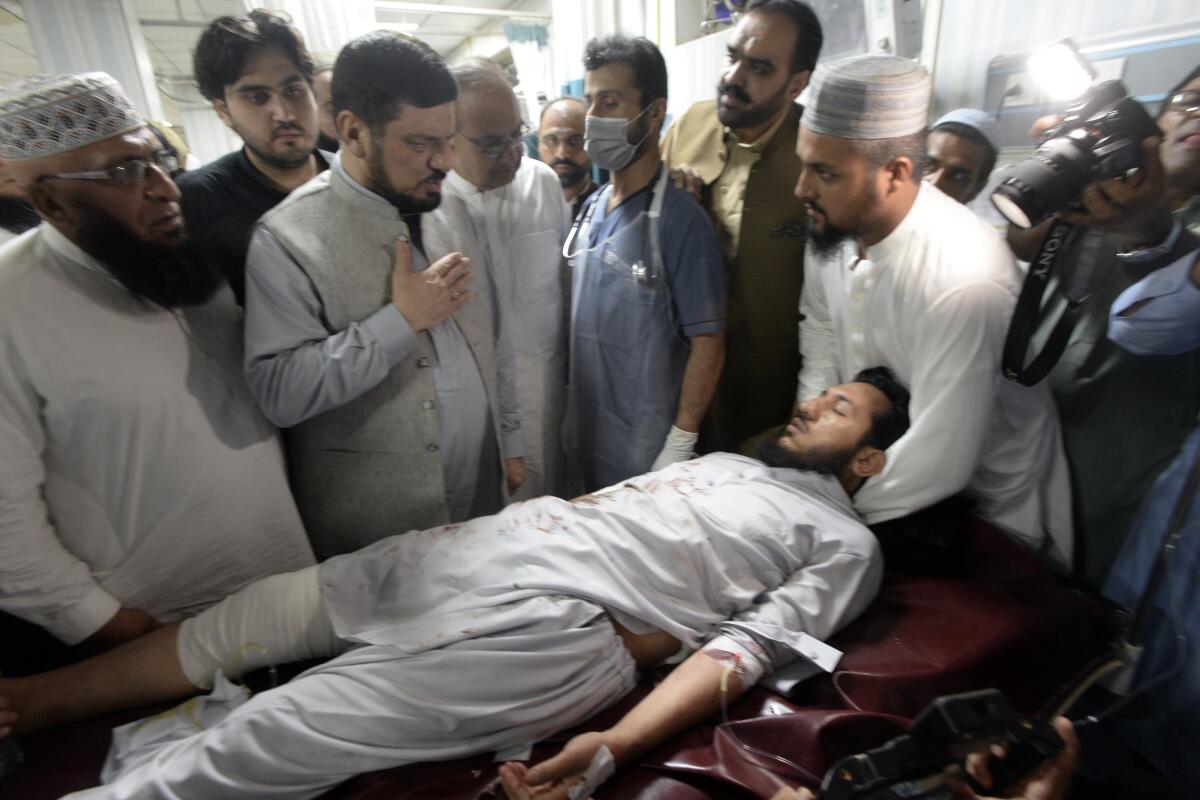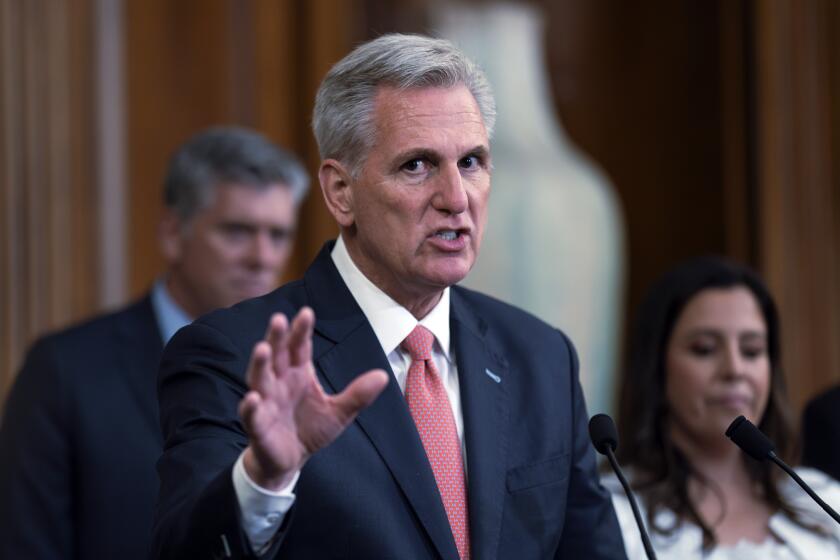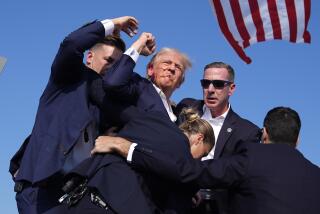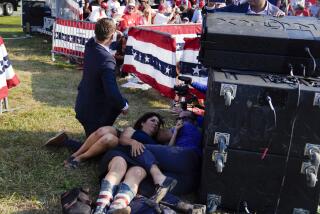A bomb at a political rally in Pakistan kills at least 44 people and wounds nearly 200

- Share via
A suicide bomber blew himself up at a political rally in a former stronghold of militants in northwestern Pakistan bordering Afghanistan on Sunday, killing at least 44 people and wounding nearly 200 in an attack that a senior leader said was meant to weaken Pakistani Islamists.
Senior police officer Nazir Khan said the workers’ convention of Maulana Fazlur Rehman’s Jamiat Ulema-i-Islam party was taking place on the outskirts of Khar, the capital of Bajur district, when the explosion took place. AP video showed wounded people being carried from the scene in the chaotic aftermath of the explosion.
Bajur used to be a haven for Islamist militants. It is the former stronghold of the Pakistani Taliban, known as Tehreek-e-Taliban Pakistan, or TTP, a militant group that is a close ally of the Taliban government of Afghanistan. The TTP was in recent years evicted from the area as a result of operations by the Pakistani military.
Lawmakers broke for their August recess this week with many worried about whether they can avoid a partial government shutdown upon their return.
In a statement sent to the Associated Press, the TTP condemned the bombing, saying it was aimed at pitting Islamists against one another. Zabiullah Mujahid, a spokesman for the Afghan Taliban, also condemned the bombing. “Such crimes cannot be justified in any way,” he said in a message on the social media platform X, formerly known as Twitter.
Though a separate group, the TTP remains a close ally of the Afghan Taliban, who seized power in Afghanistan in mid-August 2021. The takeover emboldened the TTP. It unilaterally ended a cease-fire agreement with the Pakistani government last November and has since stepped up attacks across the country.
One of the victims, Adam Khan, 45, was hit by splinters in his leg and both hands. He said it was around 4 p.m. when the explosion knocked him to the ground.
“There was dust and smoke around and I was under some injured people from where I could hardly stand up, only to see chaos and some scattered limbs,” he said.
Initially, police said 10 people were killed but later more bodies arrived at a hospital, bringing the death toll to 40. Feroz Jamal, the provincial information minister, told the Associated Press that 40 people had been “martyred” and nearly 200 wounded in the bombing.
The workers’ convention was being held in a hall close to a market, but later tents were added because of the large number of supporters who turned out. The venue was being guarded by party volunteers with batons. An announcement was being made for the arrival of Abdul Rasheed, a senior leader of the party, when the bomb exploded.
Provincial police said in a statement that the attack was carried out by a suicide bomber who detonated his explosives vest close to the stage where several senior party leaders were sitting. It said initial investigations suggested the Islamic State group could be behind the attack.
The bombing was one of the four worst attacks in the northwest since 2014, when 147 people, mostly schoolchildren, were killed in a Taliban attack on an army-run school in Peshawar. In January, more than 100 people, mostly policemen, died in a bombing in Peshawar.
District health officer Dr. Faisal Khan said 40 bodies from the blast were at Khar’s main hospital. Some of the wounded were in critical condition and were being transferred to a facility in Peshawar and the adjoining district of Dir, including by army helicopters.
Prime Minister Shahbaz Sharif and President Arif Alvi condemned the attack and asked officials to provide all possible assistance to the wounded and the bereaved families.
Maulana Ziaullah, the local chief of Rehman’s party, was among the dead. Jamiat-Ulema-i-Islam leaders Rasheed and former lawmaker Maulana Jamaluddin were also onstage but escaped unhurt. Party officials said Rehman was not at the rally.
Rasheed, the regional chief of the party, said the attack was an attempt to remove Jamiat-Ulema-i-Islam from the field before parliamentary elections in November, but he said such tactics would not work.
Rehman is considered to be a pro-Taliban cleric and his political party is part of the coalition government in Islamabad. Meetings are being organized across the country to mobilize supporters for the upcoming elections.
“Many of our fellows lost their lives and many more wounded in this incident. I will ask the federal and provincial administrations to fully investigate this incident and provide due compensation and medical facilities to the affected ones,” Rasheed said.
Mohammad Wali, another attendant at the rally, said he was listening to a speaker address the crowd when the huge explosion temporarily deafened him.
“I was near the water dispenser to fetch a glass of water when the bomb exploded, throwing me to the ground,” he said. “We came to the meeting with enthusiasm but ended up at the hospital seeing crying, wounded people and sobbing relatives taking the bodies of their loved ones.”
More to Read
Sign up for Essential California
The most important California stories and recommendations in your inbox every morning.
You may occasionally receive promotional content from the Los Angeles Times.











